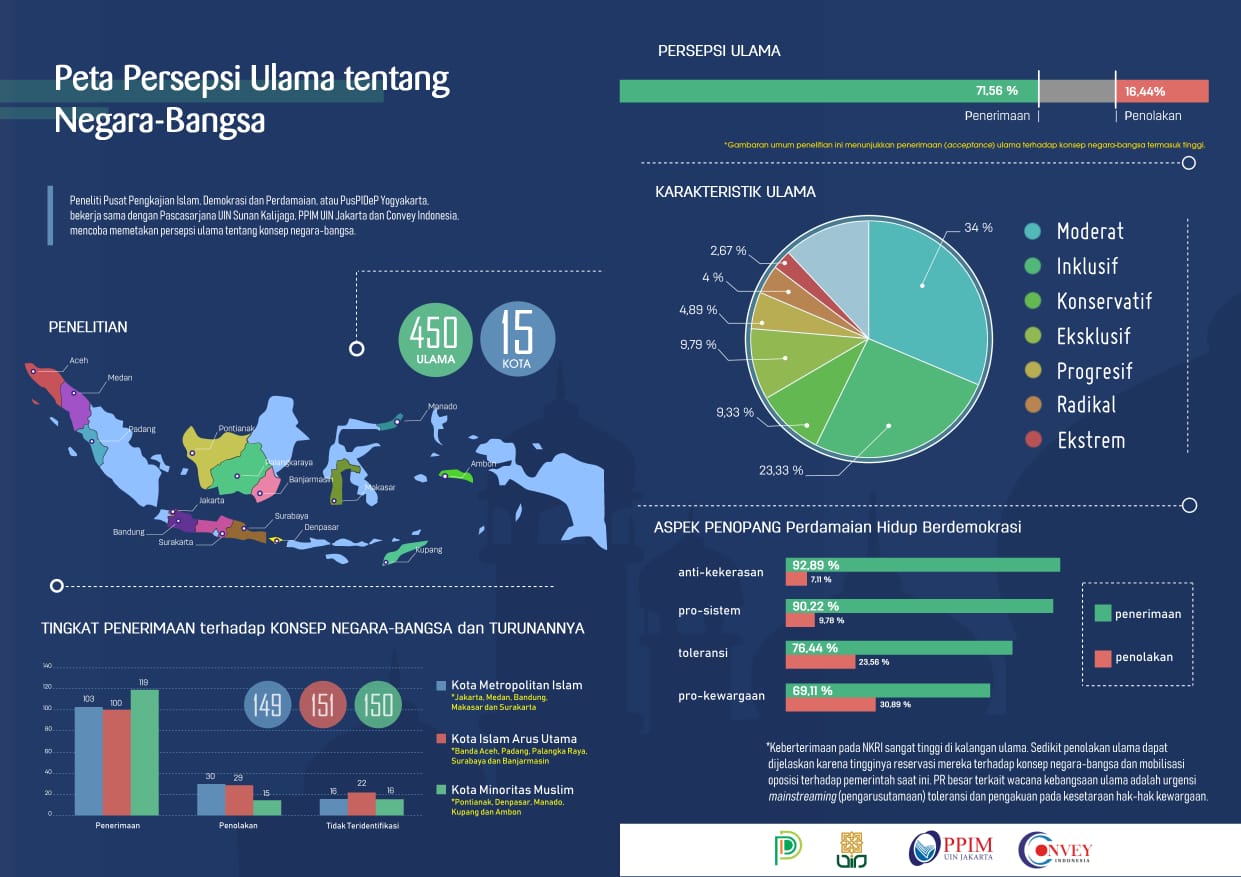Survey and Research on Religious Leaders/Ulama Perceptions on Nation-state

Research on Government Policies on Religious Education in SEAs
February 26, 2019
Research on Mechanism in Producing Religious Teachers
February 26, 2019The most significance phenomenon from democratization in Indonesia in the later of 1998 is the revitalization of public space which rises presence of plurality power and public discourses. During the time, democracy has also allowed for transformation and shaping definition of Islam and how it connects with everyday live. This anomaly has been empowering role of religious leaders or ulama to intervene more in delineating religious practice and apperception in public sphere. At the end of the day, the trend of how ulama play great role in religion-to-civic construction been much or less pointing question on how “nationalism” or Pancasila perceived by ulama and societies on the later.
Researchers and experts have acknowledge whereas social institutions like ulama has such great play in shaping political and cultural understanding of societies. In the contest of political authority and conventional religiosity, ulama appeared to be a paramount figure in the middle of public sanctimonious in the last two decades. Some of ulama even drown in Islam populism which emerged along with political identity.
The research conducted in collaboration with the Center of the Study of Democratic Islam and Peace (Pusat Pengkajian Islam Demokrasi dan Perdamaian/ PusPIDeP) Graduate School of Sunan Kalijaga Islamic State University, Yogyakarta. The study meant to examine relationship of social and political views of ulama or religious leaders in the recent development of religion-state convergence. More particularly, the research focused on how ulama’s perception of religion/state has any significant influence or contribution to construct peoples’ idea.
It followed with survey primarily in 15 provinces in Indonesia (Banda Aceh, Medan, Padang, Jakarta, Bandung, Surakarta, Surabaya, Pontianak, Palangka Raya, Banjarmasin, Makassar, Manado, Denpasar, Ambon, dan Kupang) and involved 450 ulama. Then continued with further in-depth interview with 150 ulama.
Further findings and analysis can be accessed in its book “Ulama Politik dan Narasi Kebangsaan: Fragmentasi Otoritas Keagamaan di Kota-Kota Indonesia” (Ulama of Politics and Narratives of Nationalism: the Fragments of Religious Authority in the Scattered Cities of Indonesia) and its book report here. The policy brief which tells a solid analysis to cultivate fruitful strategic recommendations can be accessed here as written in Bahasa.





